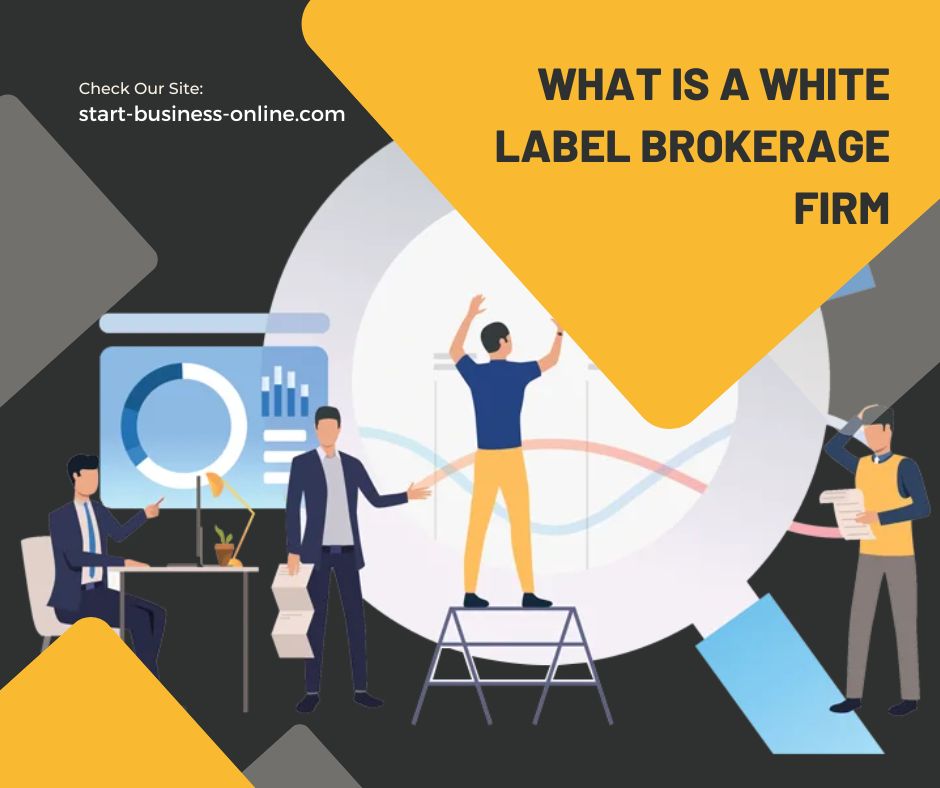In today’s globalized, fast-pacing world, speed is of the essence and time always matters and as they say... it means money.
Are you attracted by the highly lucrative potential of the forex market and think that launching your own forex firm is the perfect business idea, but you are not quite sure what your next step should be?
Launching a Forex firm is an exciting business opportunity, but as with any business, it makes sense in the first instance to do some groundwork on how to become a Forex broker and then compile a forex brokerage business plan, which will include important aspects such as registration and what trading instruments you will offer. You also need to think about whether you should open a brokerage from scratch or opt for a white label solution. The difficulty and complexity of setting something from scratch in the forex market, has led many key players in the industry to white label solutions, which many aspiring new entrants to the market turn to in order to overcome the numerous entry barriers that may inhibit them to enter this lucrative market.
To help you decide which option suits you best, this mini-guide discuss all relevant topics to allow you to discern what best serves your needs, capacities, capabilities, requirements and vision.
Page Contents
- 1. What is a white label brokerage firm?
- 2. What is a white label provider?
- 3. How to choose a provider that meets your needs
- 4. What about starting a brokerage business?
- 5. What are the risks in running a brokerage business?
- 6. Bottom line in starting a brokerage firm
- 7. How does a white label brokerage save time and money?
- 8. Why is a white label brokerage better than a traditional brokerage firm?
- 9. Are prop trading firms in direct competition to the traditional brokerage model?
- 10. Start trading with your funds
- 11. Set up a legal entity for your firm
- 12. Build a team of professional traders
- 13. Attract new investors
- 14. How much does it cost to open a White Label Forex Prop / Proprietary Trading Firm?
- 15. Conclusion
- 16. FAQs on white label prop trading firm solutions
View more
What is a white label brokerage firm?

A white label brokerage is a company that provides trading technology and services to other businesses that want to offer their own branded trading venue to their customers. This allows you to offer trading services without having to develop your own technology or infrastructure from scratch.
White label brokerage firms typically provide a range of services, including trading platforms, market data, and back-office support, that can be customized and branded by the partner company.
What is a white label provider?
A white label broker provider will provide you with brokerage services so you won’t have to build everything from the group up with your own resources. This arrangement is often beneficial for both the white label broker provider and the company that uses its services, as it allows the white label broker provider to focus on offering high-quality brokerage services without having to worry about marketing and sales, while you as a white label brand owner can offer a wider range of financial services without having to invest in developing your own brokerage capabilities. White label broker providers are common in the financial industry, but the best ones are usually not easy to find. This guide will help you discover them.
How to choose a provider that meets your needs
So, you’re ready to start your own white label brokerage business. The first step would be a process of comparing providers and choosing one according to your preferences.
It is important to make sure the provider has a good reputation and also provides quality services at an affordable price. You can check reviews from other clients or visit them on social media platforms such as Facebook, Twitter and LinkedIn to get first-hand information about how they perform their services and whether they are able to meet customer expectations in terms of price, quality of work, etc.
Then, you will need to implement your own brand identity by creating trading platforms that are branded and reflect your company's values.
This is the time where you need to focus on developing a strong brand identity for your brokerage. You can use design resources like Canva or Adobe Spark to develop your own logo and website.
However, do remember that branding isn’t everything, so don’t spend too much time on it—there are other things you should be focusing on as well. The most important thing is building an excellent product that helps clients execute their trades easily while they also enjoy trading with you because of how easy it is!
You should also make sure that there is no overlap between your white label brokerage and existing products in the market; otherwise, there will be little point in providing white label brokerage services when others already offer such services at competitive prices (and possibly better than yours).
Next step - focus on marketing. Marketing is not just about advertising and sales. It's about building relationships and trust. It takes time, but the rewards are well worth it.
As soon as these steps are fulfilled, you will be able to start trading operations with clients.
When clients are interested in opening an account with your white label brokerage firm, they can contact you through phone or email. You will have to follow up with them and give them all required information to open an account. At the same time, this information should also be stated on your website with an easy-to-follow registration process.
After the client’s account has been opened successfully, he/she is allowed to trade on using their username and password.
Overall, starting a white label brokerage business is not an easy task. There are many steps that need to be taken into account before you can start trading with clients. However, if you want to be successful in this field, it’s important that you do your research and find the best solution for your needs. This said, why not start a traditional brokerage business? Let’s see how these two compare.
What about starting a brokerage business?

A brokerage business can be complicated for a number of reasons. First, the financial markets are complex and constantly changing, which requires brokers to have a deep understanding of various financial products, regulations, and market trends. This can be challenging to navigate and requires ongoing training and education.
Second, brokerage firms must comply with a wide range of regulations, both at the national and international level. This can be complex and time-consuming, as brokers must ensure that they are following all relevant laws and regulations to avoid fines and other penalties.
Third, brokerage firms must deal with a high volume of transactions and a large amount of data, which can be challenging to manage and process efficiently. This requires the use of sophisticated technology and systems, which can be complex and costly to maintain.
Overall, the combination of complex financial markets, strict regulations, and the need for advanced technology and systems makes the brokerage business a challenging and complicated industry to operate in.
What are the risks in running a brokerage business?
Market risk: Brokerage firms are exposed to market risk, which is the risk that the value of financial instruments will decline due to changes in market conditions. This can result in losses for the brokerage firm and its clients.
Credit risk: There is also credit risk, which is the risk that a counterparty to a financial transaction will default on their obligations. This can result in significant losses for the brokerage firm.
Regulatory risk: Brokerage houses must comply with a wide range of regulations, both at the national and international level. Failure to comply with these regulations can result in fines and other penalties, which can be damaging to the firm's reputation and financial health.
Operational risk: Brokerage firms must manage a large volume of transactions and a large amount of data. This can be challenging, and any operational failures or disruptions can result in losses for the firm and its clients.
Overall, the risks associated with a brokerage business can be significant, and it is important for brokerage firms to manage these risks carefully to protect their business and their clients.
Bottom line in starting a brokerage firm
If you want to operate a brokerage firm, and are located in the U.S., you will need to register with The Securities and Exchange Commission (SEC). This is the agency that regulates the ownership, sale and trade of securities in the United States while FINRA, another agency, regulates brokers, broker-dealers, exchanges, clearing agencies and other firms involved in securities transactions.
Brokers are responsible for executing orders from clients to buy or sell stocks on their behalf at the current market price. They may also recommend certain stocks to their clients based on their own research into company fundamentals. Brokers who work for large firms may be able to offer advice about complex financial instruments like options contracts or futures contracts as well as other types of financial instruments such as mutual funds or annuities that you can purchase through your brokerage account (more on this later).
In short, to operate a brokerage, you need to register with the SEC, get a license (pass a licensing exam), and get funded. To get there, you need to meet a long list of requirements and obligations. And then you need to determine how much startup capital you will need.
Before you begin the process of starting a brokerage firm, it is important to pinpoint how much startup capital you will need. Startup capital requirements vary by type of brokerage firm and state in which it operates. For example, to become an investment adviser or broker-dealer, a minimum amount of capital must be maintained at all times and is subject to ongoing review by the SEC.
On average, though, you can start out with less than $1 million in startup funds. One way some people get started is with personal savings or investments they already have; another method involves getting loans from banks or other lending institutions (though banks are generally wary of lending money for this purpose).
If you don’t feel like going through the rigorous process of registering and licensing as a brokerage firm, there’s an easier way to go pro in the financial markets. Be a white label broker. It saves money, it’s easier, and it’s efficient.
How does a white label brokerage save time and money?
A white label brokerage can save money by leveraging a turnkey solution for trading services. Rather than building your own trading platform and infrastructure from scratch, you can use the services of a white label brokerage provider to quickly and easily launch your own branded trading platform.
This can save your company significant time and resources that would otherwise be spent on developing the necessary technology and infrastructure. Additionally, a white label brokerage can provide access to a range of services and support, which can help your company save money on operational costs and reduce the need for in-house expertise.
Why is a white label brokerage better than a traditional brokerage firm?
There are a few potential reasons why a white label brokerage might be better than a traditional brokerage firm. For one, a white label brokerage can offer its services without having to invest in building its own brand and reputation, which can save it time and money.
This can allow it to offer its services at a lower cost than a traditional brokerage firm. Additionally, because a white label brokerage operates under the brand name of another company, it may be able to offer its services to a larger and more established customer base than it could if it were operating on its own. This can be especially beneficial for companies that are just starting out and are looking to quickly establish themselves in the marketplace. Finally, because a white label brokerage relies on the reputation of the company whose brand it uses, it may be able to provide its services with a higher level of trust and credibility than it could if it were operating on its own.
Are prop trading firms in direct competition to the traditional brokerage model?

The prop trading market currently shows a much stronger development and dynamic than the forex and CFD sector. Growth and turnover in FX and CFDs are stagnating or declining. Prop trading in connection with securitization is shaping the trading industry. The Funding-Traders industry is massively growing, and the commercial competition within is getting tough and challenging.
In today’s business world everyone thinks: "How can we add more value than anyone else? How can we make some company young again?". Companies are constantly trying different approaches aiming the groups’ gathering either offline or online. The twist is traders trade the company’s money. They are starting their own prop-trading firms. With white label technology a company regardless its size can now start their own prop-trading firm overnight.
Entrepreneurs in the financial industry have located an opportunity to leverage the interest of people wanting to get funded for trading. The appeal to traders is multifaceted. First, it allows for access to a greater amount of capital than the trader might personally have. Second, it can be tied into an educational journey for traders. Additionally it can provide a challenge for more experienced traders, giving the notion of gamification trading which is a great way to engage traders and to provide an even more entertaining trading experience.
As a prop trading firm you have the ability to choose the traders you work with and give them a set of benchmarks to follow. This way, you can earn consistent returns that you can later share with them.
Let’s walk through the steps to starting a prop trading firm. We'll start by discussing the easy ways to set up your firm legally and then move on to recruiting professional traders and attracting investors.
Start trading with your funds
You can now start trading with your own money. It is recommended to start small and build up as you gain experience. You should also take out a stop-loss order, which can help you prevent larger losses than you planned for if things go wrong.
If you want to trade with other people's money, then the next step will be finding clients who are willing to entrust their money with you in return for fees or commissions. The best way to do this is through referrals from fellow traders and friends who already know that they can trust you with their funds. If possible, it may be worthwhile getting your foot in the door by offering free advice or even starting off by working on commission rather than charging fees until your reputation has been established among potential clients as someone who knows what they're doing when it comes to trading successfully on behalf of others (or themselves).
Set up a legal entity for your firm
Setting up a legal entity for your firm is crucial. A legal entity is the name that you will be operating under and it protects you from personal liability.
Example: ABC Capital Markets LLC.
Build a team of professional traders
Hiring a team of professional traders is a big leap toward profitability. You don't want to be the only person trading, because you need someone to share the load and help you stay on your feet during fast-paced market fluctuations. If you've never been involved in prop trading before, hiring people with experience will be your most important hiring decision.
It's important to find people who have some kind of financial background—either they went to college and studied finance or they are ex-traders themselves (this means they know what it takes to succeed). If you have no experience in this area yourself but would still like to start a prop trading firm, your best bet would be finding someone who has worked at other firms and can bring along their own team members. In order to recruit new traders, ask around among people you know or post an ad online if possible; there are plenty of websites where you can advertise openings at your company!
Either way, you can set up a trading challenge and bring in the winners as you share profits any way you decide.
Attract new investors
The first step in attracting new investors is to make sure that you have a clear understanding of what your potential investors want. A good way to do this is by preparing yourself for any questions they might ask. Here are some examples:
- How much risk are we taking?
- What are the potential rewards?
- Are we investing with a professional team?
- Are we investing with a trustworthy team?
- You can start a prop trading firm with your own money or you can set up a legal entity for your firm. You should build a team of professional traders and attract new investors to your company.
How much does it cost to open a White Label Forex Prop / Proprietary Trading Firm?
The approximate costs of starting your own white label Forex Prop / Proprietary Trading Firm can vary from no setup costs to $15,000 USD which is still much more affordable comparing with the costs of a total ownership plan of a Prop Firm that you will set up from scratch.
With the opening of a white label Prop Trading brand under an existing brokerage you can enter the Forex market in a relatively quick and straightforward way. All of that, without the enormous hassle involved in opening a brokerage firm by yourself. The more trading volume you have running through the platform, the higher the revenue of the broker, and as a result - the profit you will make. So the most important part of your business model would be to attract traders and keep them trading in your system.
In a white label arrangement, revenue and compensation models are very flexible, and it all depends on the details of your partnership agreement. The difference between the business models lie mainly in the scope of their functions, and in their degree of autonomy. While white label prop firm can simply act as intermediary between the technological provider and the existing broker, firms can also be more full-fledged businesses, with greater independence and more control of their clients.
Get in touch with our Experts, and let's take your business further. Create a bespoke remuneration that works for you and exceeds what you can find elsewhere in the industry.
Conclusion
Congratulations, you're now a prop trading firm! You’ve got your team and funds, and you're ready to make some money. The next step is to start trading so that you can better understand how it works in the real world. From there, it will be easier for you to attract new investors who are confident that their investment will pay off if they trust those who know what they're doing.
FAQs on white label prop trading firm solutions
A white label brokerage can save money by leveraging a turnkey solution for trading services. Rather than building your own trading platform and infrastructure from scratch, you can use the services of a white label brokerage provider to quickly and easily launch your own branded trading platform. This can save your company significant time and resources that would otherwise be spent on developing the necessary technology and infrastructure
There are a few potential reasons why a white label brokerage might be better than a traditional brokerage firm. For one, a white label brokerage can offer its services without having to invest in building its own brand and reputation, which can save it time and money.
To grow your white label brokerage, you need to provide enough funding, set up a legal entity, hire some traders, and attract investors to really give your brand a flying start.
Yes. The prop trading market shows a much stronger development and dynamic than the forex and CFD sector. According to experts the funding-traders industry will keep massively growing for the next couple of years
The approximate costs of starting your own white label Forex Prop / Proprietary Trading Firm can vary from no setup costs to $15,000 USD Get in touch with our Experts, and create a bespoke remuneration that works for you and exceeds what you can find elsewhere in the industry.
There are several different ways to attract new customers and generate leads for your forex Proprietary Trading Firm. Some of these ways include affiliation, affiliate networks, email marketing, social media marketing, and more. It's important to remember that you should experiment with different methods to find what works best for your business. Luckily, if you are not well-equipped with marketing tools or knowledge in the field, our experts, will come equipped with affiliation solutions to help stream potential clients to your firm.




